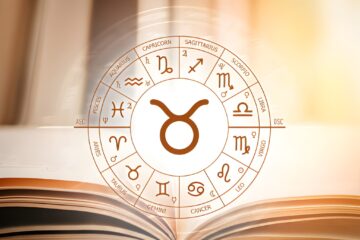Mars in Vedic astrology (Mangal / Kuja) represents energy, aggression, initiative, protection, and raw will. Where Saturn teaches through patience and endurance, Mars teaches through action — often fast, sometimes reckless, always consequential. If Saturn says “wait,” Mars says “move.” If Saturn is responsibility, Mars is instinct. And, if Saturn is survival over time, Mars is survival in the moment.
The house where Mars in Vedic astrology sits shows where you fight, where you take risks, and where you refuse to back down. That part of life becomes a battlefield, a training ground, and sometimes a scar. It’s also where you’re capable of extraordinary bravery when aligned with purpose instead of anger.
This article explores how Mars in Vedic astrology behaves by sign and house, how it acts for each Ascendant (functional nature), how certain Mars combinations work, why “Manglik” is misunderstood, and what Mars Mahadasha asks from you.
The Functional Nature of Mars in Vedic Astrology
The functional nature of Mars in Vedic astrology changes with the Ascendant because Mars rules different houses in different charts. Sometimes it acts like a clean weapon; sometimes it acts like a landmine.
- For Cancer Ascendant: Mars rules the 5th and 10th houses, making it a Yoga Karaka (a planet that can give power, reputation, authority). Even when Mars is “debilitated” in Cancer, it can still give status, leadership potential, and emotional courage when dignified by support from the Moon. This is huge: Cancer Ascendants often fear Mars in Cancer, but classically, Mars for Cancer Lagna can still bless.
- For Leo Ascendant: Mars rules the 4th and 9th houses, again making it a Yoga Karaka. Here Mars can give legacy, respect, property, and dharma-driven authority. This is a constructive, leadership Mars when supported.
- For Gemini and Virgo Ascendants: Mars in Vedic astrology tends to behave more harshly. Mars rules dusthana-type houses for these Lagnas and can bring tension, conflict, health issues (like inflammation or accidents), or workplace friction if not supported by benefic aspects.
- For Scorpio Ascendant: Mars is the Lagna lord. It is central to identity. But Scorpio Ascendant also gets Aries as the 6th house (enemies, conflict, injuries). So Mars is powerful but mixed: protective and intense, but also combative. If Mars sits in the 1st, 3rd, or 6th, it can make the native persistent, competitive, and mentally unafraid.
Bottom line: Mars in Vedic astrology can be a problem planet for some charts and an achievement planet for others. You must read Mars by house rulership, not just temperament.
Mars in Vedic Astrology and House Placement
The house of Mars shows where your fight shows up in real life. It’s where you burn hot, defend territory, and sometimes overreact. Here are recurring patterns seen in practice:
- 1st House (Lagna): Strong presence, physical drive, survival instinct. Can bring temper, headaches, impatience. For Cancer Ascendant, Mars in the 1st can still be beneficial because Mars is a Yoga Karaka here — yes, even “debilitated” Mars can protect you and push you into leadership if Moon is strong.
- 3rd House: Initiative, courage, entrepreneurial behavior, competitive speech. Can stress younger siblings. This is a classic placement for “I will do it myself.”
- 4th House: Internal restlessness. Possible friction with mother, home stability, or real estate matters if Mars is afflicted. If strong (like Mars in Aries or Capricorn), it can also give property and land power.
- 6th House: Excellent for dominance over enemies and obstacles. You fight and win. But if Mars is afflicted, injuries, infections, legal issues, or inflammatory health problems may appear. This is also a karmic “service through combat” position — the crisis manager, the fixer, the surgeon, the enforcer.
- 8th House: Volatile. Deep karmic heat. Can produce surgeries, sudden shocks, or intense confrontations. Spiritually, this can sharpen willpower and occult insight when supported by benefics.
- 10th House: Mars gains directional strength in the 10th. This is a powerhouse for career. You’re pushed toward leadership, technical work, executive authority, enforcement roles, engineering, organized systems, or military/police-type command. For many natives, this is “I don’t follow. I run things.”
- 11th House: Ambition for gains, networks, seniority. You fight for recognition, revenue, social standing. This can create fast professional climbs — especially if supported by Saturn or Jupiter.
- 12th House: If linked with Ketu or affliction, can suggest secret struggles, private anger, hidden relationships, or surgical/ hospital themes. Also strong for spiritual tapas (austerity) if guided well.
Notice how often the words fight, protect, surgical, confront, command show up. That is not accidental. That is Mars.
Mars in Vedic Astrology, Dignity, and Debilitation
Let’s talk about the famous fear placement: Mars in Cancer (debilitation).
Classically, Mars is “debilitated” in Cancer, meaning its fire gets emotional, protective, indirect. But here’s what modern practitioners and many traditional teachers actually see in charts:
- Mars in Cancer is still in the 4th house from Aries and the 9th house from Scorpio — both supportive distance relationships from its own signs. This matters.
- Cancer is ruled by the Moon. Moon is friendly to Mars. If the Moon is strong and Mars has shadbala/Ashtakavarga support, Mars in Cancer is not “ruined.” It’s intense, emotional, protective, and strategic rather than blunt.
- For Cancer Ascendant, Mars rules the 5th (intelligence, legacy, children) and the 10th (career, status). That makes Mars a Yoga Karaka. So even in Cancer, Cancer Lagna folks can absolutely rise in career with emotional ferocity and protective leadership. This is classic Neecha Bhanga logic: what looks “weak on paper” often corrects in real life.
In short: don’t treat “debilitated Mars in Cancer” as automatic failure. Mars in Vedic astrology rarely just gives up. It mutates. And sometimes that mutation turns into survival genius.
Classic Mars Combinations in Vedic Astrology
Combinations (yogas) involving Mars tell you how martial energy gets filtered. Here are some of the most important:
- Mars + Rahu (Angarak Yoga): Explosive drive. This can produce elite competitors, athletes, cops, soldiers, surgeons, crisis managers, or CEOs who handle fire. Shadow side: rage, impulsive risk, compulsive escalation. Needs grounding and ethics.
- Mars + Saturn: Friction between “GO NOW” (Mars) and “WAIT, STRUCTURE” (Saturn). But if harnessed, this combo creates absolute workhorses — people who grind through impossible situations. Often seen in charts of those who build careers through discipline, not luck. Authority issues are common early on.
- Mars + Jupiter (Guru-Mangal Yoga): Righteous action, moral courage, bravery that serves a cause. Can turn into “I know best” arrogance if unsupported, but classically seen in protectors, defenders of dharma, or people with a “mission.”
- Mars + Venus: Passion, seduction, creative heat, charisma. Can bring strong romantic/sexual magnetism. Shadow form: indulgence, jealousy, triangles if dignity is poor.
- Mars + Moon: Intense emotions, fast reactions, instinctive protectiveness. Can give loyalty and fearless caregiving — or emotional impulsiveness / overreaction if afflicted. Also relevant to blood/pressure issues when under stress.
- Mars + Mercury: Sharp mind, debate power, legal argument, strategy, technical problem-solving. Shadow: cutting speech, sarcasm, verbal aggression.
In practice: always check degree distance. If two planets are within ~8–10 degrees, they strongly fuse. Within ~3–4 degrees, that fusion defines behavior during Mars Mahadasha.
Mars in Vedic Astrology and Property, Injury, Conflict
Mars in Vedic astrology rules physicality — land, construction, engines, steel, blood, surgery, weapons, real estate. Strong Mars linked to the 4th house can give land, vehicles, property. Afflicted Mars in the 6th can show legal conflict, disputes, accidents, surgeries, inflammation, or injury from heat/metal/fire.
Mars also shows how you assert boundaries. If Mars is healthy, you say “no” and protect yourself cleanly. If Mars is distorted, you either explode… or stay silent until you detonate. Learning to express anger with clarity (not violence, not suppression) is advanced Mars work.
Manglik / Kuja Dosha: Reality vs Panic
Mars in houses like the 1st, 4th, 7th, 8th, or 12th is traditionally labeled “Manglik” or “Kuja Dosha.” People get scared this ruins marriage. Let’s be honest:
- Depending on the rules you use, almost 40% of charts qualify as “Manglik.” Obviously 40% of humanity is not doomed to failed marriage.
- The real question is: is Mars afflicting the actual relationship axis (7th house, Venus, Darakaraka, Navamsa indicators) without support from benefics?
- If both partners have similar Mars heat, they often match each other well. A so-called Manglik + Manglik pairing can neutralize a lot of worry.
So yes, Mars in Vedic astrology can stress relationships, but context matters. Don’t reduce it to a yes/no superstition. You read the whole chart, compare them, check Navamsa (D9). You check Venus. And, you act like an astrologer, not a meme.
Mars Mahadasha in Vedic Astrology
Mars Mahadasha lasts ~7 years in Vimshottari Dasha. It’s fast, decisive, and often unforgettable. During this period, Mars in Vedic astrology becomes the main driver of your life story.
- You’re pushed to act, compete, defend, build, or confront.
- Tempers and impulsive choices can spike if Mars is afflicted — fights, burns, cuts, reckless moves, ruptured relationships, legal conflicts.
- But if Mars is strong and functional benefic, Mars Mahadasha is incredibly productive. You can build companies, win in competitive industries, assert authority, buy land, get promoted, take control of your narrative.
- Mars matures around age 28. After that, you usually handle its Mahadasha with more focus and less self-sabotage.
Disciplined Mars is empire-building. Undisciplined Mars is self-damage. That’s the entire sermon.
Important Notes About Mars in Vedic Astrology
Does Saturn’s conjunction cancel Mars yogas in the 10th house for Aquarius Ascendant?
No. Yogas don’t “cancel” each other. They coexist. For Aquarius Ascendant, Mars in the 10th (especially strong Mars) can create Ruchaka Yoga, which gives executive force, technical skill, administrative command, police/military-style authority, engineering ability. Saturn nearby doesn’t erase this — it usually adds grind, endurance, hierarchy, and seriousness. You get “tough professional,” not “soft professional.”
Can a debilitated Mars in Cancer still give good results for Cancer Ascendant?
Yes. This is a key teaching. Even in debilitation, Mars is Yoga Karaka for Cancer Lagna and can deliver career rise, protective instinct, and emotional leadership if the Moon is strong and/or there is Neecha Bhanga (cancellation of debility). A “soft” Mars here can still be fiercely loyal, strategic, and protective.
Does Mars + Ketu in the 12th house cause injuries or secret behavior?
Mars with Ketu in the 12th can create secrecy, hidden actions, intense private desire, multiple connections, or deep spiritual austerity. It can also point to surgeries, scars, or sudden losses if badly afflicted. With a strong Jupiter or grounded lifestyle, this combo can turn into surgical focus, spiritual intensity, or investigative brilliance instead of chaos.
Does Mars in Cancer in the 1st ruin marriage?
Mars in the Ascendant (especially in Cancer) can make someone emotionally reactive and protective. Yes, this can stress marriage if there’s immaturity or hypersensitivity. But if Moon is strong and communication is mature, this placement also gives loyalty and defense of the partner. Saturn or Venus in the 7th asks for emotional regulation, not doom.
Does a high Ashtakavarga score save a weak Mars?
High BAV (Bhinnashtakavarga) points for Mars — say, 4 or more in a key house — can absolutely support results, even if Mars looks theoretically weak. Strong bindus often mean “this area gets help in real life.” Always check Ashtakavarga, not just dignity.
FAQ: Mars in Vedic Astrology
Why does Mars act well even in its sign of debilitation (Cancer)?
Because Mars is still working from friendly territory (Moon’s sign), and sits in favorable counting positions from Aries and Scorpio. Also, Mars doesn’t lose its fire easily — it just expresses that fire defensively, emotionally, protectively. A strong Moon or Neecha Bhanga can turn this into emotional courage instead of emotional chaos.
Is retrograde Mars always weak?
No. Retrograde Mars often turns the aggression inward first. That can look like brooding or hesitation at the surface — but underneath it’s strategic, relentless, stubborn. Retrograde Mars can give depth, technical focus, and survival instinct if supported by benefic aspects. It’s not “weak”; it’s “intense behind the eyes.”
Is Mars in the 4th house always bad for peace at home?
Mars in the 4th can cause restlessness, impatience with family members, property disputes, or emotional agitation if afflicted. But in strong signs (Aries, Capricorn) or with benefic support, Mars in the 4th can give property, land power, vehicles, and fierce loyalty to the household. Again, context matters more than clichés.
What does Mars Mahadasha actually feel like?
Seven years of proof-of-action. You are pushed to do something instead of just talk about it. For some, it’s career breakthrough. For others, it’s legal fights, surgeries, crisis cleanup, or confrontation. Mars in Vedic astrology does not ask “Are you comfortable?” It asks “Are you willing?”
How do I harmonize Mars energy in daily life?
In classical terms, Mars is linked with Hanuman — discipline, devotion, strength without ego. Traditional approaches include Tuesday discipline, seva (service), physical training, honest work, and controlling rage before it becomes self-sabotage. In modern terms: train the body, serve something bigger than yourself, and stop using anger to hide fear.
Closing Thought (and Your Next Step)
Mars in Vedic astrology is not here to make you angry. It’s here to make you brave — but cleanly, consciously, and with accountability. It’s the part of your chart that says, “I will not let this happen to me again.”
Want to see how YOUR Mars is wired? Book a personal reading with Much Needed Astro and we’ll walk through your Mars dignity, Manglik status, Mahadasha timing, anger patterns, and relationship impact — in plain language you can actually use.




